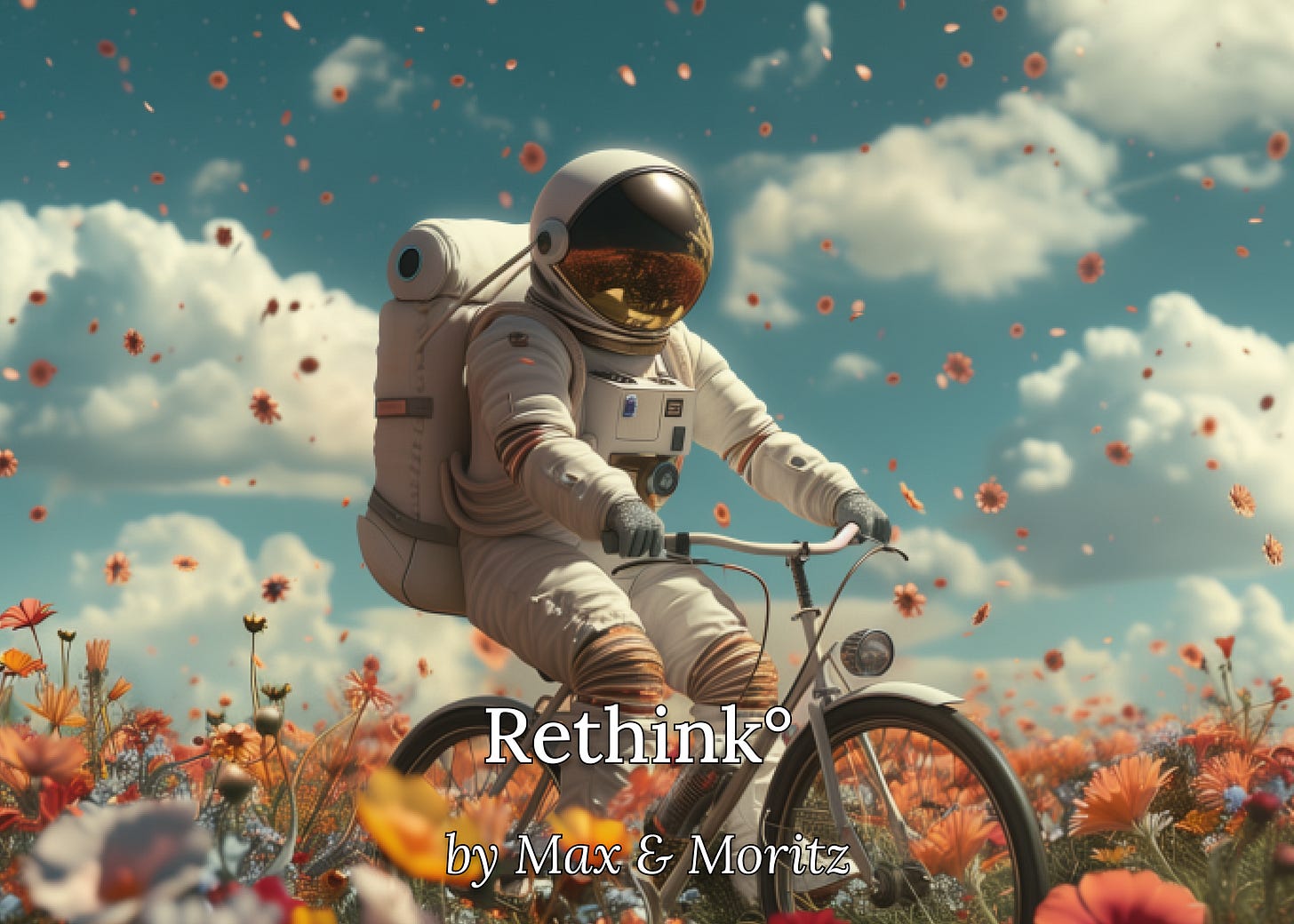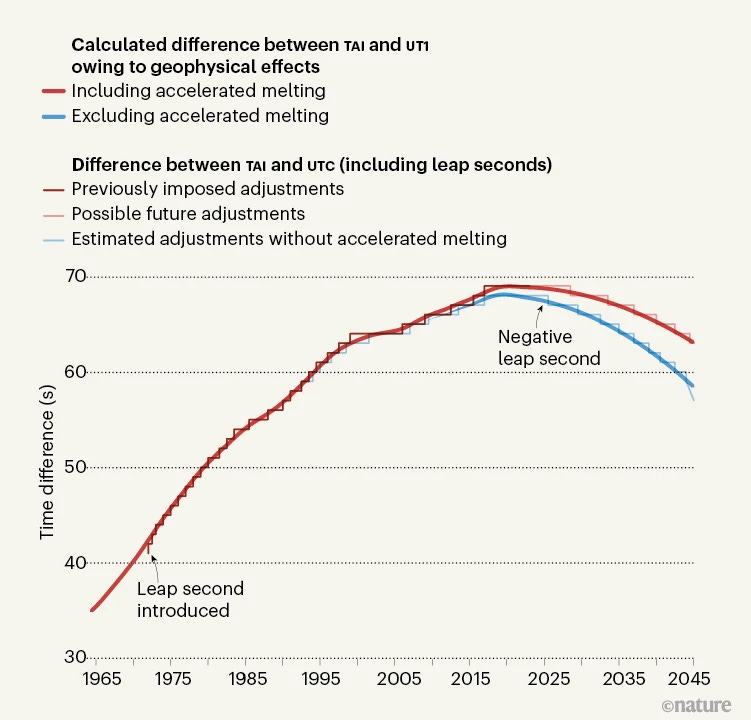Capitalism
I recently heard the following expression in a video about why Big Tech builds addictive products.
„Companies do XYZ because they have to maximize their Shareholder Value. When does that optimization stop? That leads us to question capitalism and that’s an entirely different story….“
XYZ is usually some cruel, society-damaging behaviour and that sentence is used to give the good old that-is-simply-how-it-is-and-everything-else-would-be-worse-explanation. But is that true?
Well, you might sense my doubts already. What that person here was saying is the following: „The responsibility of business is to increase its profits. Anything beyond does not concern“ That first sentence is also known as the Friedman doctrine. Friedman was born in 1912, his ideas, the shareholder capitalism, were mainly implemented in the 1980s. So what we are talking about is Shareholder Capitalism, not capitalism in general. And that, let’s call it special movement, started in the 80s. Capitalism in itself does not mean, squeezing everything and everyone for the sake of the shareholders, nor does human nature (as some economist like to argue that human nature is greed, many studies argue it’s the system that makes them believe it). So shareholder capitalism is simply one form of capitalism, an unfortunately prominent one I would say.
Many societal issues can be traced back to the idea, that the company’s sole responsibility is making profit. But it is a learned paradigm. It is taught in (business) schools all over the world, so those people striving to make decisions in business, learn to distance themselves from the outcomes. Their “team”, their purpose, becomes the firm. There are studies that show that business and economics students have a tendency to be self-interested and more focused on material possessions, when they begin their studies. But it shows also that this is strongly reinforced over the course of studies. We constructed the paradigm of greed, and we are teaching it over and over (Lameris et al. 2023). The quoted study is correctly called „What have we done?“
I would say, we do not need to override capitalism as a whole to fix many issues we see. The first step is to update it. Change the philosophy of teaching away from „more, more, more“ in business and give a larger, societal perspective. Start second guessing the „greed is good“ believe and base new beliefs on science that tell us: caring for others makes us happy (one simple study here: Gentile et al. 2019, There are many more to find).
I recently had a conversation with a founder who is selling his company to itself, making it a purpose company. After making it purpose, only people who are involved in operations can make decisions and no profits are distributed any more (in German, listen to it here). The founders had to ask themselves a crucial question: What is enough? How much do we allow ourselves to earn from selling our firm, before it is fair to cut the ties.
In my observation, we are only asking „what is enough?“ when we are looking down. What is enough to survive? What is enough to be considered a „fair wage“? When have I given enough to others? What’s enough taxes paid? But at times when the richest 1 % of the globe own nearly „twice as much wealth as the rest of the world put together“. Or let me rephrase: We split a cake into 3 equal pieces. 1 person takes 2 of them, the other 99 have to share the third. In a world where we call that a reality, we should’nt ask whether we should split that 3rd piece into more equal parts, we should ask: „When is it enough?“ to own stuff. What’s the point where you mustn’t own new stuff any more because you are disproportionately taking away other people’s ability to own and use stuff just to have even more.
That question, too, is capitalism my dear Friedman-capitalists. And you know who gave a fascinating answer to it? The motherland of free-market capitalism: The United States of America. They had a marginal tax rate of around 91 % for individuals between 1944 and 1951 (IRS).
Avid readers might notice „ahh but that’s an income tax“, true no wealth tax, no tax on inheritance or „maximum wealth“. But all roads lead to Rome. The objective should be to give people a fair share from the start. Everyone has the right to play it away or to make use of it, but everyone has to have it. The world would be fair place if everyone knew they’d be born again, but they didn’t know where. Just imagine for once that you belong to the 1 % of the richest people and you are on your deathbed. You’ will likely die today, you know, tomorrow you’ll be born again. So, you do the numbers:
With a near certainty of 99 %, you are not gonna be born among the richest 1 %
With a 40 % probability, you will be born into a family highly vulnerable to the impact of climate change
With a 10 % probably you will be born into extreme poverty .
You realize, that these numbers might be even higher, simply considering birth rates.
Now you choose: Are you gonna give all your wealth to a single heir, or would you use some of that money to up your chances for the next run?
Let us know in the comments 😉
Melting ice solves leap-second problem — for now
📰 Teaser: In 1967, the definition of a second changed from being based on Earth's rotation to the quantum transition of a cesium atom. To keep this new time standard (UTC) aligned with Earth's rotational angle (UT1), leap seconds have been added since 1972. However, Earth's rotation has recently accelerated, potentially requiring an unprecedented "negative" leap second. Accelerated melting of polar ice sheets due to human-induced climate change has delayed the need for a negative leap second from about 2027 to 2029, but is unlikely to prevent its eventual necessity. Continue Reading (→ Nature; 15 min)
🤔 Max two cents: The potential need for a negative leap second to align Earth's rotation with the official time standard (UTC) poses significant technological challenges, similar to those faced during the Y2K bug. Just as computer systems had to be updated to handle the transition from 1999 to 2000, they will need to be adapted to accommodate the unprecedented removal of a second from the clock. This change could have far-reaching social and economic implications, as many critical systems, such as satellite navigation, financial markets, and global communications, rely on precise timekeeping. It is fascinating to see the unexpected effects that human-induced climate change will have in the coming decades.
Degrowth Is a Dead End
📰 Teaser: The concept of degrowth, which advocates for actively shrinking affluent economies and transferring resources to the Global South, is gaining increasing attention. However, the political obstacles confronting the movement are insurmountable due to its all-or-nothing approach and reliance on a collective moral awakening. Continue Reading (→ Project Syndicate; 4 min)
🤔 Max two cents: The author is right that degrowth is challenging to achieve in the near future, and a depoliticized understand of how to achieve degrowth won’t help either. Nevertheless, do we have an alternative to rethinking our current economic system? Climate change is accelerating, and technological “fixes” are not maturing quickly enough, and growing resource consumption is pushing humanity further and further beyond the planetary boundaries?! To give up on envisioning and thriving for alternative economic models will certainly doom us, as an extractive model that is premised on continual growth cannot be maintained on a finite planet. Technology, while largely responsible for our current level of wealth, still relies on further consumption of virgin resources. Re-use and recycle will not suffice on a timescale that is relevant to mitigate climate change and biodiversity crisis. Thus, we ought to entertain and develop ideas for systemic change, as continued engagement can help shift the Overton Window to encompass degrowth and other ideas, that are currently considered radical.
For some more titbits, I recommend Hans Stegeman’s blog post on LinkedIn.
📚 Rethink° Book Club
Please share with us what you are reading.
Moritz: The last book I finished is Morele Ambitie or moral ambition in english. The claim of the author: “We have to stop wasting talent”. Or as a former Facebook employee puts it: “The Best Minds of My Generation Are Thinking About How To Make People Click Ads”. Bregman calls in his book for people with ambition to achieve something but not only for their own pocket, but for society. Morally ambitious people, he dives into examples, like Nader’s Raiders that helped shape laws or movement that abolished slavery. Once it’s published in english / your language I can only recommend it!
Unfortunately, the book and the movement is only available in dutch so far. If you speak dutch, I highly recommend you read it!
Max: This March I returned to Cory Doctorow, whose books I have read last winter extensively. His latest book, “The Lost Cause” is a social science fiction novel set in near-future California around 30 years from now. Climate change has caused rising seas, fires, and floods, making millions homeless. This has led to a political shift towards eco-socialism and Green New Deal-style policies in North America and Europe. It manages to portray the challenges, in particular the societal ones, in particular MAGA and Libertarianism, that we are likely to face. Are you aware of any climate-fiction that achieves a satisfactory balance between entertainment and factuality?
Send us your recommendations, and we’ll list the highlights: me@mjmey.com
Not yet enough? Here are some evergreens and recent content we came across:
🎧 Outrage and Optimism on climate policy and action by the chair of the Paris Climate Agreement Christiana Figueres, Tom Rivett-Carnac and Paul Dickinson.
🗞️ The ESG on a Sunday newsletter is for everyone who wants to keep up with developments in sustainable finance.
🎥 Water Bear is a non-profit movie platform focused on advancing activism, as a Netflix for impact.
📅 Rethinking is timeless. Read our February issue.
↻ Rethinking, Thinking Again? Adam Grant will help you how to do it.
Have you encountered something we might want to read/listen/watch? Please send it to us or leave a comment.
We hope you enjoyed it. Please comment, subscribe, and share.
All the best, and keep rethinking,








